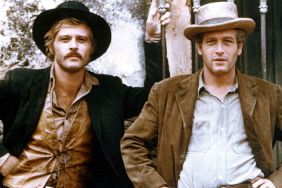Photo: Tito Puente, Dave Valentin, and Celia Cruz.
Photographer Joe Conzo, co-author of Born in the Bronx, has been documenting the people of his native borough since the 1970s. As the first graduating class of South Bronx High School, Conzo came up as the official photographer for the Cold Crush Brothers at the dawn of Hip Hop. From the school gymnasiums to the local Police Athletic League, Conzo documented the first generation of DJs and MCs as they invented an art form that brought the creativity of the streets to the world.
Also: Azucar! The Life of Celia Cruz Comes to Netflix in an Epic 80-Part Series
At the same time, he was the grandson of Dr. Evelina Antonetty, affectionately known as “The Hell Lady of the Bronx.” The founder of United Bronx Parents (a PTA organization that Conzo’s mother now runs some 30 years later), Dr. Antonetty was instrumental in introducing bilingual education and summer lunch programs into New York City public schools. She fought City Hall—and she won. Then she went after Hollywood, battling Paul Newman and the producers of Fort Apache, The Bronx over its depiction of blacks and Latinos as drug pushers, whores, pimps, and murderers.

Dr. Evelina Antonetty, TATS CRU Mural.
“And that’s why they used to call her The Hell Lady of the Bronx,” Conzo recalls. “She had no problem with cursing a congressman, an assemblyman, a council member—because, in essence, they worked for her, they work for the people who elected them.”
That sense of community existed in all corners of Conzo’s life, from the local protests and Hip Hop shows to the upper echelons of the music industry. His father, Joe Conzo Sr., was Tito Puente’s right hand man, acting as personal manager, producer, confidant, and historian for over 40 years. Together, they traveled the world bringing Latin music to all corners of the globe.
Puente, who was the “King of Latin Music,” was Tio Tito to young Joe, who was just a teenager when he got all access to photograph the legends of Latin music at their height in performances at Madison Square Garden, Lincoln Center, Windows on the World, and right in their own backyard at the Lehman College Center for Performing Arts and Beau’s Restaurant, both in the Bronx.

Celia Cruz and Carlitos Díaz
Conzo remembers, “It was a different level for me. One week I would be photographing Hip Hop in the high school gymnasium, the following week I would be at the Garden with a crowd of 40,000 people, going from one extreme to the other.”
But it was all family. Celia Cruz, Eddie and Charlie Palmieri, Johnny Pacheco, Ray Baretto—the list goes on. Everyone was Tio and Titi to the young Conzo, who was given full access to photograph the legends of Latin music in their prime.
“Tito Puente was the biggest Latin musician in the world and he didn’t have one bodyguard. He would go into the audience and sign everyone’s autograph,” Conzo recalls, invoking the spirit of an earlier time, when Puente was Tio to all.
Celia Cruz, known as Titi Celia, was, as Conzo remembers, “a goddess. There I was next to this woman that hundreds of thousands of people wanted to get close to. She was very astute, very serious about music, and her appearance was always impeccable. She was filled with love and affection, always hugging and kissing everyone. She was loved by millions. Her music was phenomenal.”

Celia Cruz and Tito Puente
Salsa music embodies the spirit of the people as it touches the soul with alluring rhythms, mesmerizing winds, seductive strings, and lively horns. It calls to people to come and dance, to feel the emotion the is born in their marrow of their bones. It gives back to us what the daily grind takes away: our humanity, our passion, and our sense of community.
That is why it was not unusual to find Charlie Palmieri, one of the greatest Salsa pianists, teaching piano for nothing to students in the Bronx. Conzo remembers, “The Palmieri Brothers grew up in the Bronx. They went to I.S. 52 Junior High School. So did Orlando Marin, the last Mambo legend. They had a phenomenal music program at the time. My grandmother later went to jail to keep it. The Board of Education wanted to close the school, so she organized a takeover of the gymnasium and took a billy club to the chest from a cop.”
The legends of Latin music never forgot their roots no matter how high their stars climbed. Conzo observes, “It’s all intertwined: the community activism, the pride of heritage, where you were born and where you were raised.”
They were artists of the people, always willing to give back. As Conzo’s photographs remind us, their art was pure magic.
All photos: © Joe Conzo
Miss Rosen is a New York-based writer, curator, and brand strategist. There is nothing she adores so much as photography and books. A small part of her wishes she had a proper library, like in the game of Clue. Then she could blaze and write soliloquies to her in and out of print loves.








